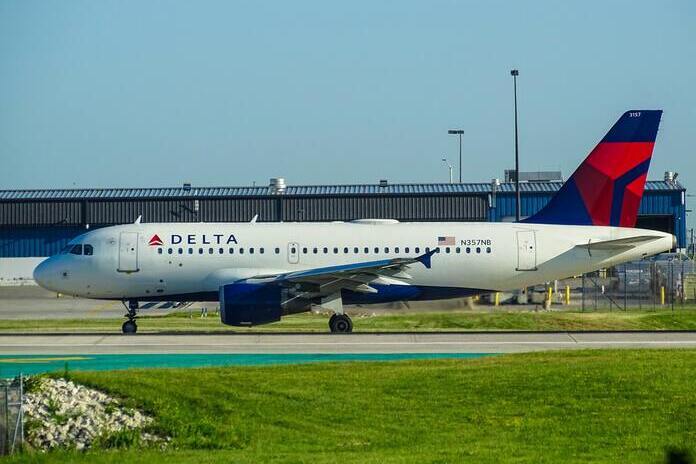Delta Air Lines (NYSE:DAL) has posted a quarterly profit that exceeded expectations, bolstered by robust international travel demand. Nevertheless, the airline has adjusted its full-year outlook downwards due to rising fuel costs.
The positive quarterly results contrast with domestic demand softening, raising concerns about consumers curtailing travel spending in the face of dwindling household savings, the resumption of student loan repayments, and high-interest rates. Delta’s CEO, Ed Bastian, has advised against interpreting this as an industry-wide trend. In an interview, he emphasized that the demand for Delta’s services remains strong, and their customers are in good financial health. He further emphasized that their domestic business is performing well.
Delta’s stock saw an approximately 1% increase in morning trading.
However, the surge in fuel costs has put pressure on profits. Delta anticipates adjusted earnings in the range of $6 to $6.25 per share for the full year, a reduction from the $6 to $7 per share estimated in July.
For the third quarter, the airline reported an adjusted profit of $2.03 per share, surpassing analysts’ expectations of $1.95, aided by a 35% increase in international passenger revenue compared to the previous year. Delta noted that the demand for overseas travel has remained strong throughout autumn.
In the upcoming December quarter, Delta expects adjusted earnings in the range of $1.05 to $1.30 per share, compared to the $1.11 estimated by Wall Street analysts. The airline has forecast an adjusted operating margin of 9% to 11% in the fourth quarter, with a year-on-year revenue increase in the range of 9% to 12%.
Despite concerns about inflationary pressures, U.S. carriers have benefited from travelers making up for lost time during the pandemic by accepting higher fares.
However, airline fares have declined by double digits compared to the previous year, and ticket prices for holiday travel have also decreased. Data from the online travel agency Hopper indicates that the average domestic round-trip airfare for the Thanksgiving holiday is 14% lower than the previous year, and fares for Christmas travel are 12% lower.
In this context, ultra-low-cost carriers like Spirit Airlines and Frontier Airlines have faced pressure to offer steep discounts and engage in heightened promotional activity to fill their planes.
In contrast, Delta has reported that demand for premium cabins continues to outpace demand for low-fare basic economy seats, which now represent less than 5% of its total seats. Bastian stated that there is some pricing pressure at the lower end of the market, but that is a matter for others to address.
Featured Image: Unsplash















